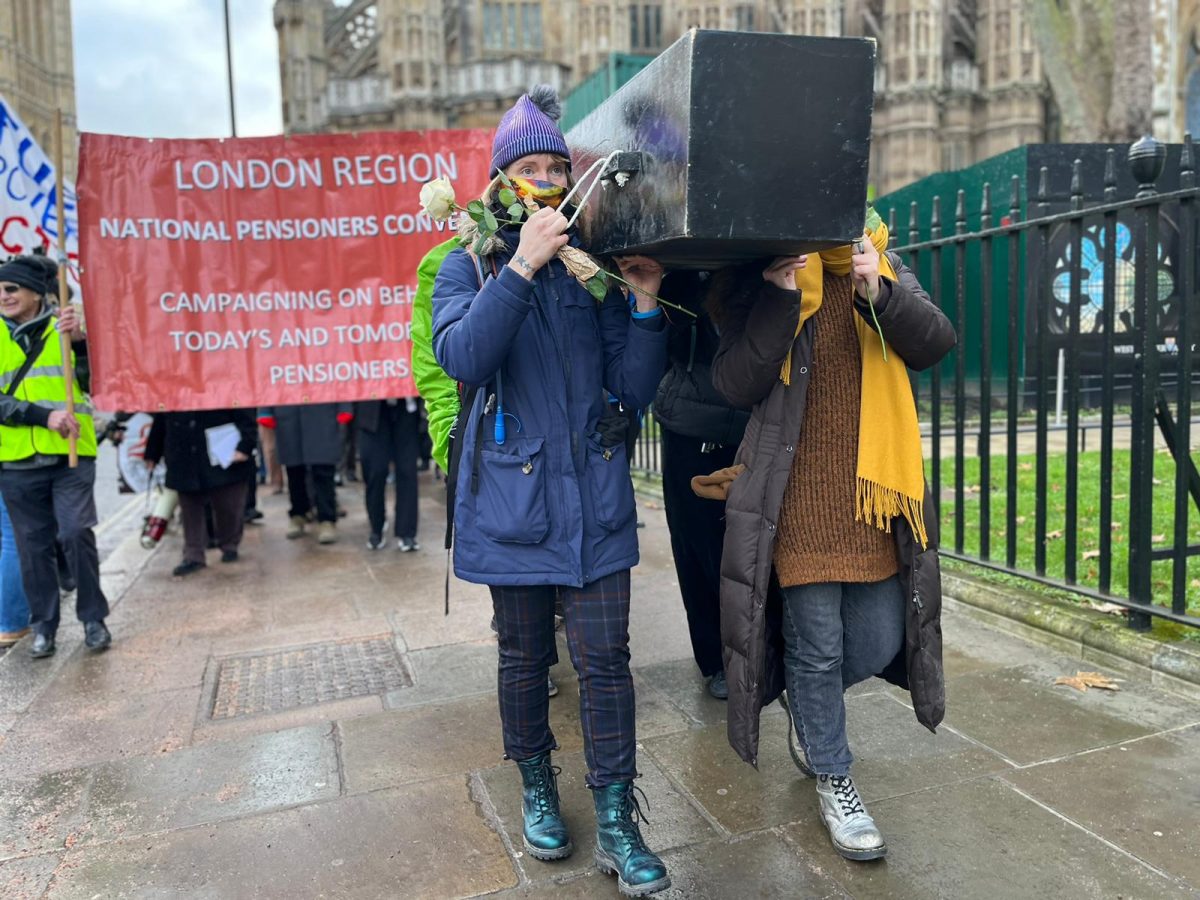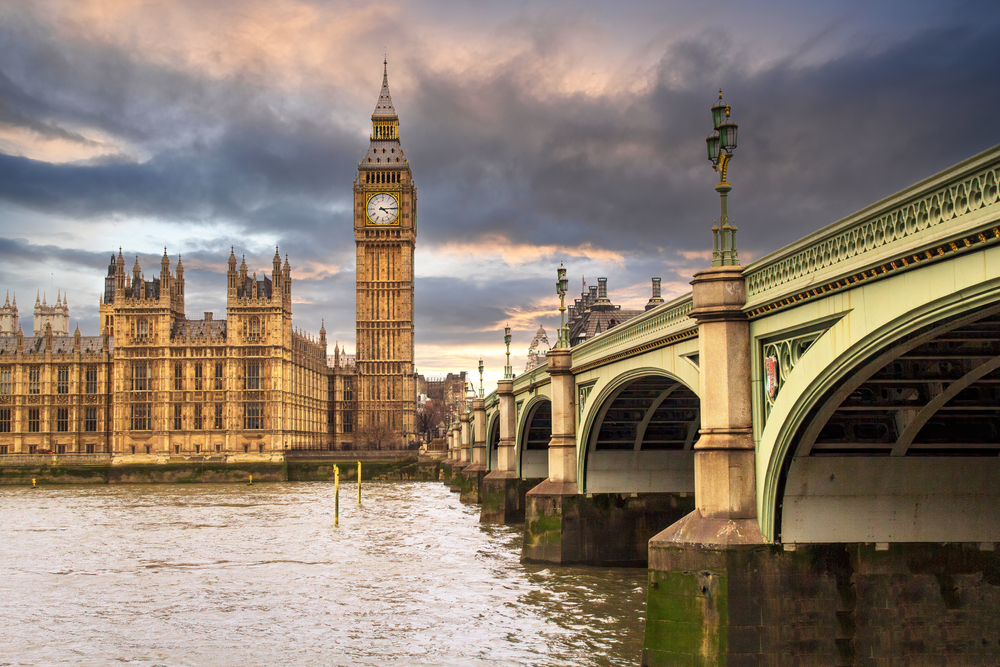The House of Commons Energy Security and Net Zero Committee has heard estimates that there were 4,706 excess winter deaths in 2022/23 caused by living in a cold home in England, Scotland and Wales. [1]
The figures, compiled by the End Fuel Poverty Coalition using official data, were presented to MPs at the Committee’s inquiry into Government preparations for winter.
At the same time, a report card by the Warm This Winter campaign on the Government’s progress against 8 key measures to tackle the energy bills crisis, has revealed that on half of these measures Ministers are making no progress. [2]
The report card shows that on 3 measures rapid progress is needed, but on one measure, the Government has actually gone backwards, by taking steps that will deepen the country’s reliance on expensive fossil fuels.
Meanwhile, mounting evidence suggests that a new class system is emerging in Britain, based on access to energy.
Fewer than 5m of the UK’s 28m households could be classed as being in the “energy elite” and unaffected by the current energy bills crisis. Around 8m have to borrow money to pay their energy bills and over 1m have disconnected for periods this year. [3]
The rest of the population are also subject to high energy bills, which have doubled in the last three years. Among this wider group, people have used up savings and cut back on essentials to keep the lights and heat on. With winter approaching and the cost of living crisis continuing, the ability of people to pay sky high energy costs is severely diminished. [4]
The health implications of living in cold damp homes are severe. In addition to contributing to excess winter deaths, existing medical conditions are made worse and a new pan-European study found that two-thirds of people in fuel poverty experience debilitating depression or anxiety. [5]
The End Fuel Poverty Coalition was among consumer groups giving evidence to the Committee:
A spokesperson for the Coalition also commented:
“The public see tackling the energy bills crisis as the main way the Government can help ease the cost of living crisis, but sadly ministers have been making slow or no progress on the policies needed to keep people warm this winter and the next.
“Thousands of people die every year in cold damp homes and countless more turn to the NHS as existing health conditions worsen due to living in such conditions. Fuel poverty is a public health crisis, but it can only be addressed by economic and engineering solutions.
“Many of the solutions do not need to place extra burden on the Treasury and we expect MPs to ensure ministers and the energy industry do much more to help those most in need this winter.”
Tessa Khan, executive director of Uplift, which is part of the Warm This Winter campaign, added:
“Energy is now barely affordable for a majority of households in the UK, and millions of people are saddled with energy debt or have had to disconnect because they are simply priced out of today’s energy market.
“While it helped pay our bills last year, this government has done nothing to fix Britain’s broken energy system. There’s been next to no progress on insulating homes or unblocking the barriers to cheaper renewable energy. Instead, we’ve had a lot of hot air over new North Sea drilling, which will do nothing to lower people’s bills. The real solutions are obvious, the government is just failing to act.”
Jonathan Bean, spokesperson for Fuel Poverty Action said:
“The country will never forgive a government that allows energy firms to profiteer whilst children go hungry and their grandparents are left shivering in their beds. And now Ofgem is planning to allow homes to be broken into again this winter to install prepayment meters – terrorising those struggling to stay warm.”
ENDS
The House of Commons Energy Security & Net Zero Committee Inquiry starts at 1000 on Wednesday 6 September and can be viewed online:
https://committees.parliament.uk/event/19027/formal-meeting-oral-evidence-session/
[1] Excess Winter Deaths (EWDs) for winter 2022/23 data taken from provisional tables from:
- Office of National Statistics (table 11, England: column J, lines 13-16 = 18,142 EWDs. Wales: column J, lines 37-40 = 1,324 EWDs)
- National Records of Scotland (link, table M1, col. N, lines 221-224 = 2,424 EWDs).
- Institute of Health Equity methodology suggests that 21.5% of EWDs are caused by living in cold homes.
Applying the IHE methodology to EWDs, means that the number of EWDs caused by living in cold damp homes are: England 3,906, Scotland 521, Wales 285. Total 4,706.
All data is flagged as provisional. NI data not available yet. Winter is defined as December, January, February and March.
Comparative number for winter 2021/22 (i.e. excluding NI) is 3,186. Previous years data sourced from ONS and NRS and collated by EFPC and published online.
[2] The Warm This Winter Report Card, summary below.
Help for people THIS WINTER
Provide more financial support for those most in need
Is the government fixing it? NO PROGRESS
Tackle the growing energy debt mountain
Is the government fixing it? NO PROGRESS
Stop forcing people onto more expensive pre-payment meters
Is the government fixing it? NO PROGRESS
An affordable ‘social tariff’ for people priced out of the market
Is the government fixing it? NO PROGRESS
Lowering energy bills FOR GOOD
Reduce bills for good with a nationwide insulation drive
Is the government fixing it? RAPID PROGRESS NEEDED
Lower electricity costs by developing more renewable energy
Is the government fixing it? RAPID PROGRESS NEEDED
Reduce the UK’s reliance on expensive gas imports
Is the government fixing it? GOING BACKWARDS
Claw back excessive profits
Is the government fixing it? RAPID PROGRESS NEEDED
The full report card and source data is available: https://www.endfuelpoverty.org.uk/about-fuel-poverty/september-2023-fuel-poverty-stock-take/
[3] 28.2m ONS household data. 16% of the population have been able to maintain usual spending so far, and expect to be able to continue to do so (YouGov, July 2023), which is also supported by Grant Thornton figures on projected household expenditure in 2021/22 (suggested that 14% of households are financially immune from cuts).
8m figure from Citizens Advice. 1m figure from Ofgem based on Q1 2023.
[4] “Used up savings” (Bank of England, as reported by Press Association, 29 June 2023), “cut back on essentials” (YouGov, July 2023).
[5] Latest health resources and evidence cited on the End Fuel Poverty Coalition website. Two thirds of people in cold damp homes suffer from anxiety or depression according to a Europe-wide study by the Wellbased group of academics [pdf].



